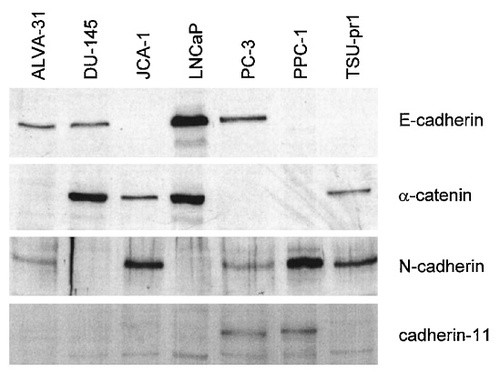Cat. #160534
Anti-Cadherin 11 [16a]
Cat. #: 160534
Sub-type: Primary antibody
Unit size: 100 ug
Availability: 10-12 weeks
Target: Extracellular domain of cadherin-11
Class: Monoclonal
Application: WB
Reactivity: Human
£300.00
This fee is applicable only for non-profit organisations. If you are a for-profit organisation or a researcher working on commercially-sponsored academic research, you will need to contact our licensing team for a commercial use license.
Contributor
Inventor: Jack A Schalken
Institute: Radboud University Medical Center (UMC)
Tool Details
*FOR RESEARCH USE ONLY (for other uses, please contact the licensing team)
- Name: Anti-Cadherin 11 [16a]
- Alternate name: CDH11, Cadherin 11, Cadherin-11
- Research fields: Cancer;Cell biology
- Tool sub type: Primary antibody
- Class: Monoclonal
- Conjugation: Unconjugated
- Reactivity: Human
- Application: WB
- Description: Cadherins are calcium-dependent cell adhesion proteins. They preferentially interact with themselves in a homophilic manner in connecting cells; cadherins may thus contribute to the sorting of heterogeneous cell types. Cadherins are known to be involved in cell migration. Changes in cadherin expression can be involved in the metastasis of cancerous cells impacting the stage, grade and prognosis of carcinomas.
- Immunogen: Glutathione-S-transferase (GST) fusion protein of the extracellular domain of cadherin-11
- Myeloma used: Sp2/0
Target Details
- Target: Extracellular domain of cadherin-11
- Target background: Cadherins are calcium-dependent cell adhesion proteins. They preferentially interact with themselves in a homophilic manner in connecting cells; cadherins may thus contribute to the sorting of heterogeneous cell types. Cadherins are known to be involved in cell migration. Changes in cadherin expression can be involved in the metastasis of cancerous cells impacting the stage, grade and prognosis of carcinomas.
Applications
- Application: WB
Handling
- Format: Liquid
- Unit size: 100 ug
- Shipping conditions: Dry ice
References
- Tomita et al. 2000. Cancer Res. 60(13):3650-4. PMID: 10910081.
- Bussemakers et al. 2000. Int J Cancer. 85(3):446-50. PMID: 10652439.



